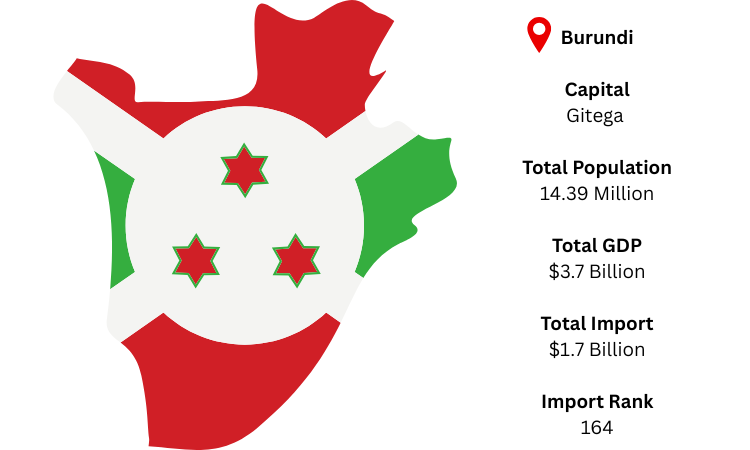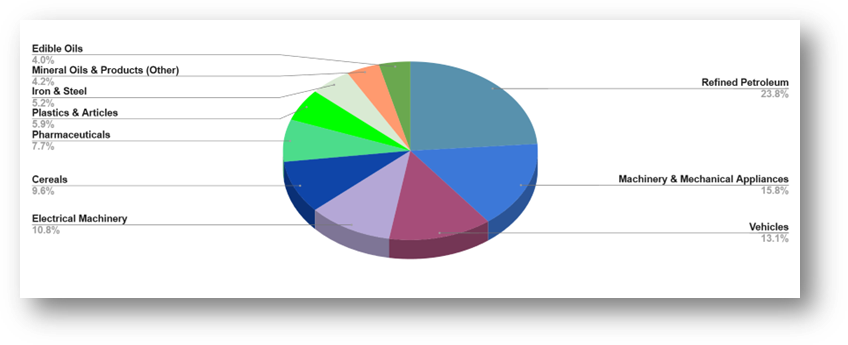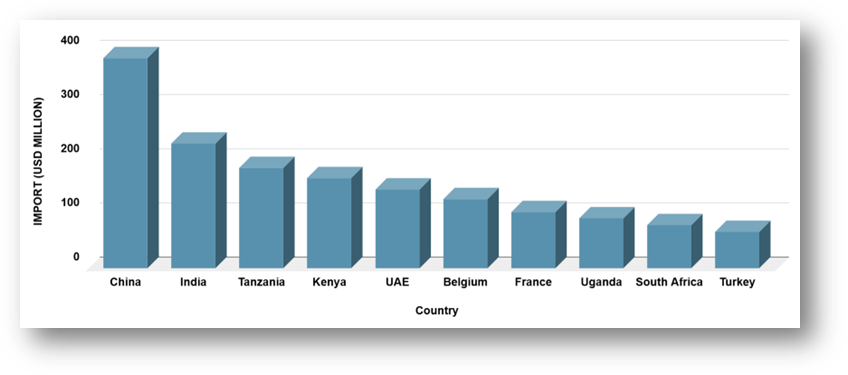Rwanda, Tanzania, and the Democratic Republic of the Congo are all neighbors of Burundi, a tiny landlocked country in East Africa. Its primary commercial center is Bujumbura, and Gitega is its capital. Due to its underdeveloped economy and low level of local production, Burundi is largely dependent on imports to satisfy its basic requirements, especially for food, machinery, and energy.
According to Burundi shipments data, with a population of around 13 million, the nation has a GDP of roughly USD 3.7 billion. Burundi's total imports are USD 1.7 billion in 2024, placing it 164th in the world. China is the nation's biggest import partner, and its main imports include food, equipment, cars, and refined petroleum.



